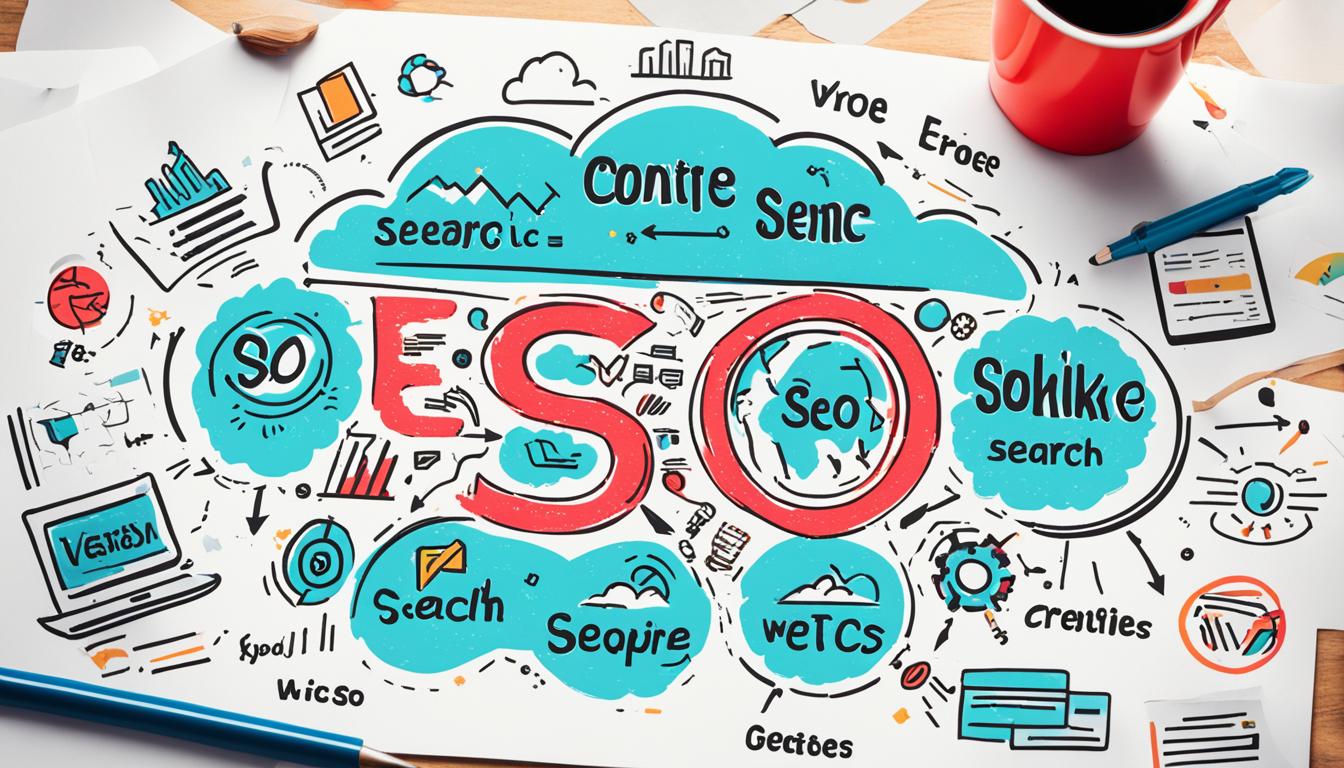What Are the Most Important Elements of SEO for a Local Business
Did you know that there are more than 200 different factors that can impact the ranking of a website in search engine results? That’s a staggering number, and it highlights the complexity of search engine optimisation (SEO).
While improving all these SEO elements can be helpful, some ranking factors are more influential than others. In this article, illl discuss the most important elements of SEO that can have the biggest impact on your website’s search engine rankings.
Key Takeaways:
- There are more than 200 different factors that can impact website rankings in search engine results.
- Some ranking factors are more influential than others.
- The most important elements of SEO can be divided into on-page and off-page factors.
- On-page SEO elements include crawlability and indexability, content quality, keyword usage, search intent, and E-A-T (expertise, authoritativeness, and trustworthiness).
- Off-page SEO elements include backlinks and social signals.
The Most Important On-Page SEO Elements
On-page SEO elements are important things that you can control on your website to optimize it for search engines that play a key role in determining how well your website ranks in search engine results. Understanding and implementing these on-page SEO ranking factors can greatly improve your website’s visibility and organic traffic.
Crawlability and Indexability
Crawlability and indexability are the foundation of on-page SEO. If search engines like Google can’t crawl and index your site, your website won’t appear in search results. To ensure crawlability and indexability:
- Upload a sitemap: A sitemap is a file that lists all the pages on your website, making it easier for search engines to discover and crawl your site.
- Add internal links: Internal links help search engines navigate through your website and understand its structure. Ensure that your website has a logical linking structure and that each page has relevant internal links.
- Check your robots.txt file: The robots.txt file tells search engines which pages they can and cannot crawl. Make sure that you haven’t unintentionally blocked search engines from accessing important pages on your site.
Content Quality
Content quality is another critical on-page SEO element. The content on your website should be unique, relevant, and valuable to your target audience. High-quality content not only attracts more visitors but also encourages them to stay longer on your site and engage with your content.
Keyword Usage
Strategic keyword usage is essential for on-page SEO. By including relevant keywords in your website’s content and metadata, you signal to search engines what your website is about. It’s crucial to use keywords naturally and avoid keyword stuffing, as this can harm your website’s ranking.
Search Intent
Understanding search intent is key to optimizing your website for on-page SEO. Search intent refers to the reason behind a user’s search query. By creating content that aligns with the intent of the search query, you can improve your website’s relevance and ranking in search engine results.
E-A-T (Expertise, Authoritativeness, and Trustworthiness)
E-A-T is a concept introduced by Google and stands for expertise, authoritativeness, and trustworthiness. Demonstrating your expertise, establishing your website’s authority, and gaining the trust of your audience are crucial on-page SEO factors. You can improve E-A-T by providing accurate and well-researched content, showcasing relevant credentials and expertise, and building a strong online reputation.
On-page SEO elements such as crawlability and indexability, content quality, keyword usage, search intent, and E-A-T are vital for optimizing your website’s performance in search engine rankings. By focusing on these elements, you can enhance your website’s visibility, attract more organic traffic, and ultimately achieve better results in your SEO efforts.
| On-Page SEO Elements | Description |
|---|---|
| Crawlability and Indexability | Ensuring search engines can crawl and index your website through techniques such as sitemaps and internal linking. |
| Content Quality | Creating valuable, relevant, and original content that engages users and provides them with the information they are seeking. |
| Keyword Usage | Strategically incorporating relevant keywords in your content and metadata to signal to search engines the relevance of your website. |
| Search Intent | Aligning your content with the intent behind users’ search queries to improve your website’s relevance in search engine results. |
| E-A-T (Expertise, Authoritativeness, and Trustworthiness) | Establishing your expertise, authority, and trustworthiness through accurate and well-researched content, relevant credentials, and a strong online reputation. |
The Most Important Off-Page SEO Elements
Off-page SEO elements refer to factors outside your website that can have an impact on its visibility and authority. Two of the most influential off-page SEO elements are backlinks and social signals.

Backlinks are links from other websites that point to your site. Search engines like Google consider backlinks as “votes of confidence” for your content. When reputable websites link to your pages, it indicates to search engines that your content is valuable and trustworthy. High-quality backlinks can positively influence your website’s ranking and increase its visibility in search results.
Social signals refer to the recognition and engagement your website receives on various social media platforms. When users share, like, comment, or interact with your content on social media, it indicates to search engines that your website is relevant and valuable. Social signals can indirectly impact your website’s ranking by increasing its exposure, attracting more organic traffic, and potentially earning backlinks from social media posts.
While backlinks and social signals are top off-page SEO elements, you should also focus on generating them organically. Building a strong online presence, creating high-quality content, and engaging with your audience can help attract natural backlinks and social media attention, ultimately improving your website’s search engine rankings.
Conclusion
By optimizing both on-page and off-page elements, you can significantly improve your website’s visibility and drive organic traffic.
On-page SEO factors, such as crawlability and indexability, content quality, keyword usage, search intent, and E-A-T, play a vital role in ensuring that search engines can properly understand and rank your website’s content.
Off-page SEO elements like backlinks and social signals also make a hefty contribution to your website’s authority and credibility, further enhancing its ranking potential.
It is important to note that SEO is an ongoing process. Staying updated with the latest best practices and adapting to the ever-changing search algorithms is key to maintaining and improving your website’s ranking over time.
FAQ
What are the most important elements of SEO?
What is on-page SEO?
What is crawlability and indexability?
How does content quality affect SEO?
How can keyword usage improve SEO?
What is search intent in SEO?
What is E-A-T in SEO?
What are off-page SEO elements?
How do backlinks affect SEO?
What are social signals in SEO?
Source Links
- https://www.searchenginejournal.com/most-important-parts-of-seo/254225/
- https://www.webfx.com/blog/seo/seo-elements/
- https://www.forbes.com/sites/theyec/2012/08/03/the-6-basic-components-of-a-strong-seo-strategy-for-online-retailers/

